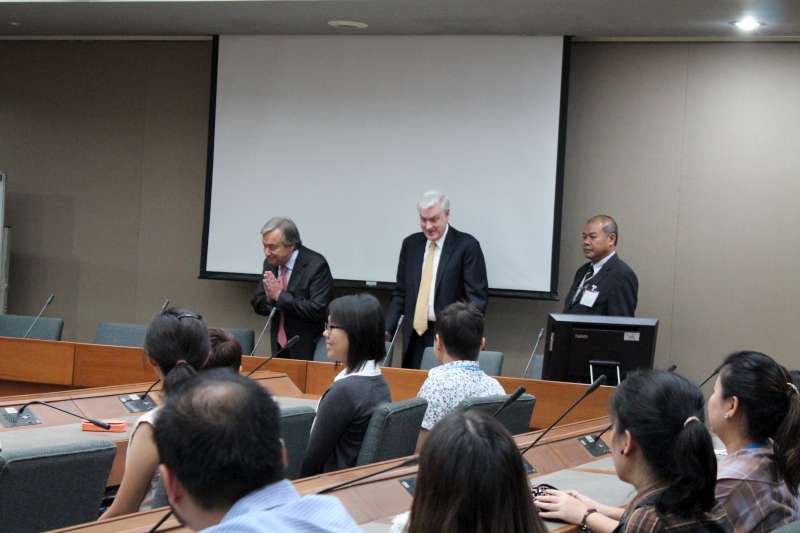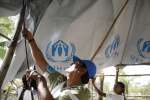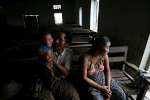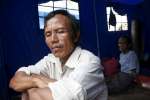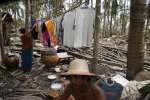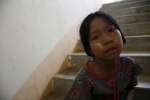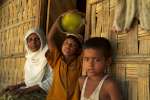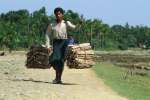- Text size
 |
|  |
|  |
| 
- Français
High Commissioner for Refugees wraps up mission to Myanmar, Thailand
News Stories, 13 July 2012
BANGKOK, Thailand, July 13 (UNHCR) – UN High Commissioner for Refugees António Guterres has concluded a five-day trip to South-east Asia with agreements in both Thailand and Myanmar that refugees should only return home voluntarily, in safety and in dignity – and should be able to stay home when they do go.
"We don't want the refugees of today to become the irregular migrants of tomorrow," he said.
Meeting Thai Prime Minister Yingluck Shinawatra, he thanked Thailand for its generosity in hosting tens of thousands of Myanmar refugees for more than two decades. The two reached "a solid agreement" that refugees should only go home when they choose to do so.
Earlier in Myanmar, Guterres told President Thein Sein and other senior officials that UNHCR supports peace-building in the south-east (the area from which refugees fled to Thailand) through assistance to displaced people.
"We are ready to help prepare for returns, which should be voluntary and carried out in safety and dignity, both of those displaced within the country and from the nine refugee camps in Thailand," he told the president and other authorities.
Both in Myanmar and in his meeting in Bangkok with the secretary general of Thailand's National Security Council, Wichean Potephosree, all sides agreed that the return of many of the 150,000 refugees now in nine camps in Thailand must be sustainable.
All sides also agreed to work together to create security, economic and social conditions on the ground to make returns successful and ensure that refugees will be able to make a living when they go back. "No one wants refugees to go home, only to have to flee again," Guterres said, "Or, worse yet, become displaced within their own country."
Less encouraging were recent disturbances in Myanmar's western Rakhine state, but there UNHCR has been delivering – and will continue to deliver – humanitarian aid to both displaced communities, Rakhine and Muslim, without discrimination.
"We believe that this can be a factor for reconciliation between communities and we hope that a situation will be established in Rakhine state with the rule of law prevailing, with a human rights-based approach," Guterres said.
The High Commissioner also expressed concerned for the status of the 800,000 stateless Muslims of northern Rakhine state.
He told President Thein Sein and the Myanmar government he hoped that – independently of possible improvements in the nationality law – nationality would be granted to the members of the Muslim community who are entitled to it under the present legislation.
"Others should receive a legal status that would grant them the full enjoyment of rights required to develop a normal life in the country," he added.
On Friday night, the High Commissioner was to travel to Ethiopia for the Africa Union summit and for a field mission on Monday to see conditions for refugees from Sudan's Blue Nile State.
By Kitty McKinsey in Bangkok, Thailand
